The best car tire inflators to boost your flats on the go
Top up those sagging tires with the right equipment
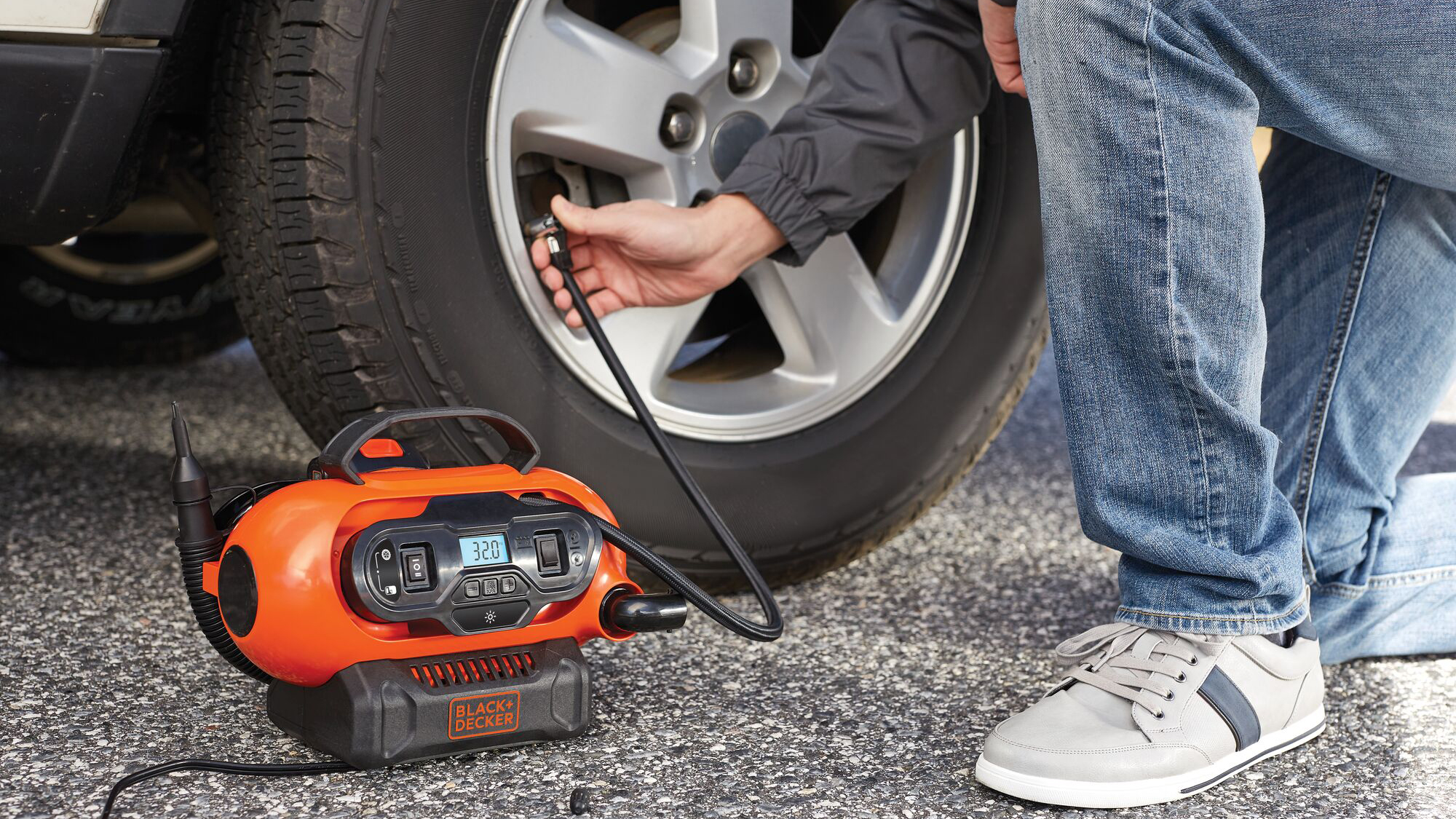
There are few things worse than the deflated feeling you get when one of your car tires goes flat — especially if you have no way to pump it up. Fortunately a huge range of tire inflators are on sale that can handle the job, ensuring you're ready to go in just a few short minutes. Because why deal with the pain of pumping up a tire yourself when a machine can do all the hard work in no time at all? .
The problem is choosing the right tire inflator. There are hundreds of models available these days but not all portable air compressors are created equally. What’s most important to you and how you plan to use the pump is critical in deciding which one to get. Here’s some help in choosing between them all, and picking the best tire inflator for your vehicle and circumstances.
The best tire inflators you can buy right now
Why you can trust Tom's Guide
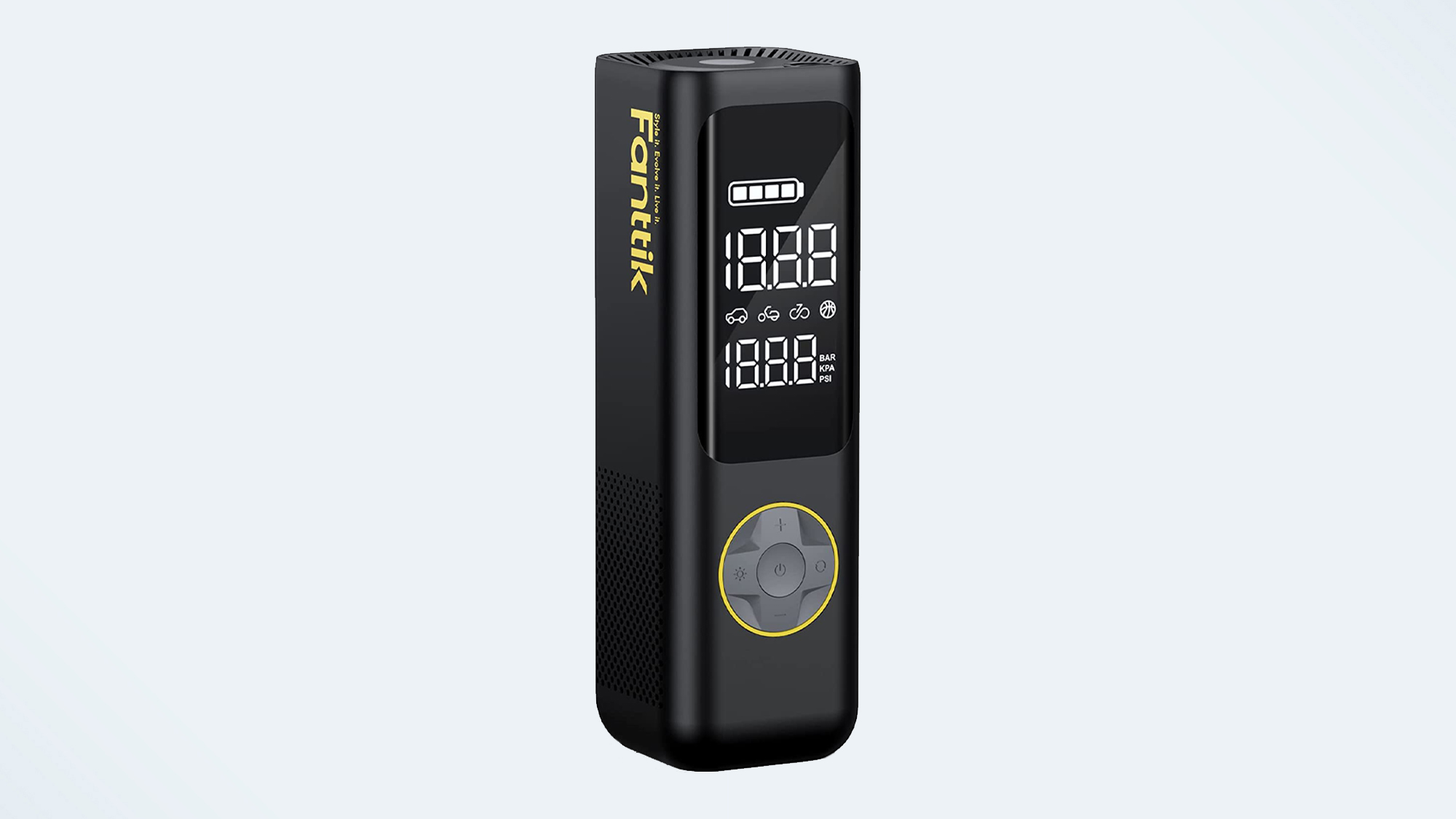
1. Fanttik X8 Apex
Our expert review:
Specifications
Reasons to buy
Reasons to avoid
While not the cheapest tire inflator on this list, the Fanttik X8 Apex has the right mix of features to make it worth picking up. The main one is its light compact design, which makes it a dream to carry around. The X8 Apex is powered by an internal battery, packs in USB charging and an LED light, a large display and pumps up to a maximum pressure of 150 PSI.
The reach is limited, and the near-four minute inflation time won’t break any records, but that doesn’t change the fact the Fanttik X8 Apex has plenty of strengths.The main one being that it isn’t going to take up precious space in your trunk, and could easily tuck into any nook or cranny inside your car.
Read our full Fanttik X8 Air Inflator review
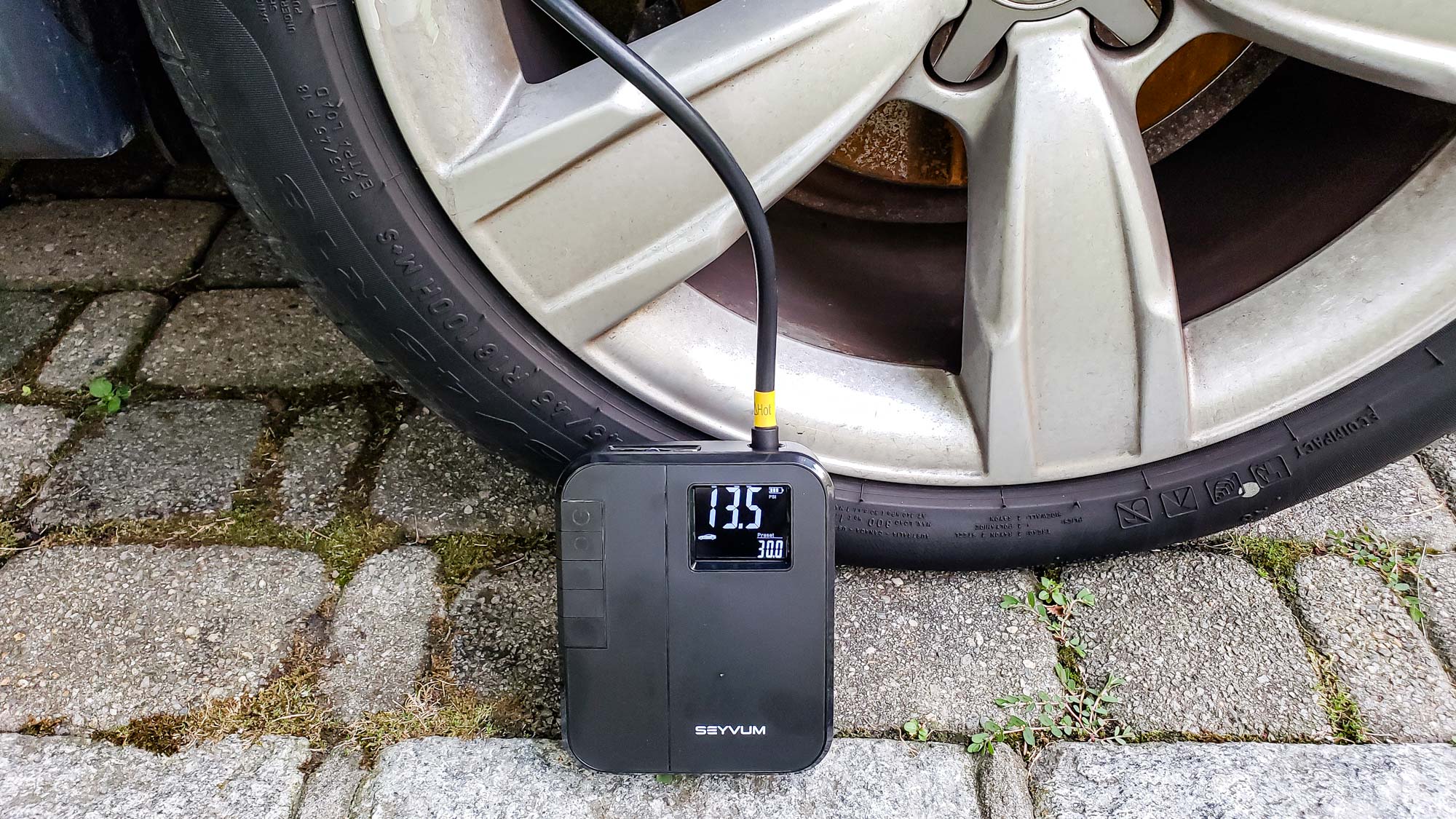
2. Seyvum DP3 Portable Air Compressor
Our expert review:
Specifications
Reasons to buy
Reasons to avoid
The Seyvum DP3 Tire Inflator offers a solid mix of everything, with a light compact design for ease of use and a 2,000 mAh that enables you to take it just about anywhere. The Seyvum also offered some of the most intuitive and comprehensive controls of all the tire inflators we’ve tested, alongside one of the lowest prices. It’s far from the cheapest, but it offers a good balance of performance and cost-effectiveness that makes it well worth having.
While there’s no AC outlet, the 12-volt connector offers 10 feet of reach and should be able to handle any battery-related mishaps. Likewise the internal cooling fans mean that you can keep inflating without having to take a break, and let the inflator cool off. Sadly the compromise is that it happens to be one of the slowest inflators we’ve used, taking over four and a half minutes to inflate a single tire. But that’s the price you pay for getting everything else at such a compelling price.
Read out full Seyvum DP3 Tire Inflator review
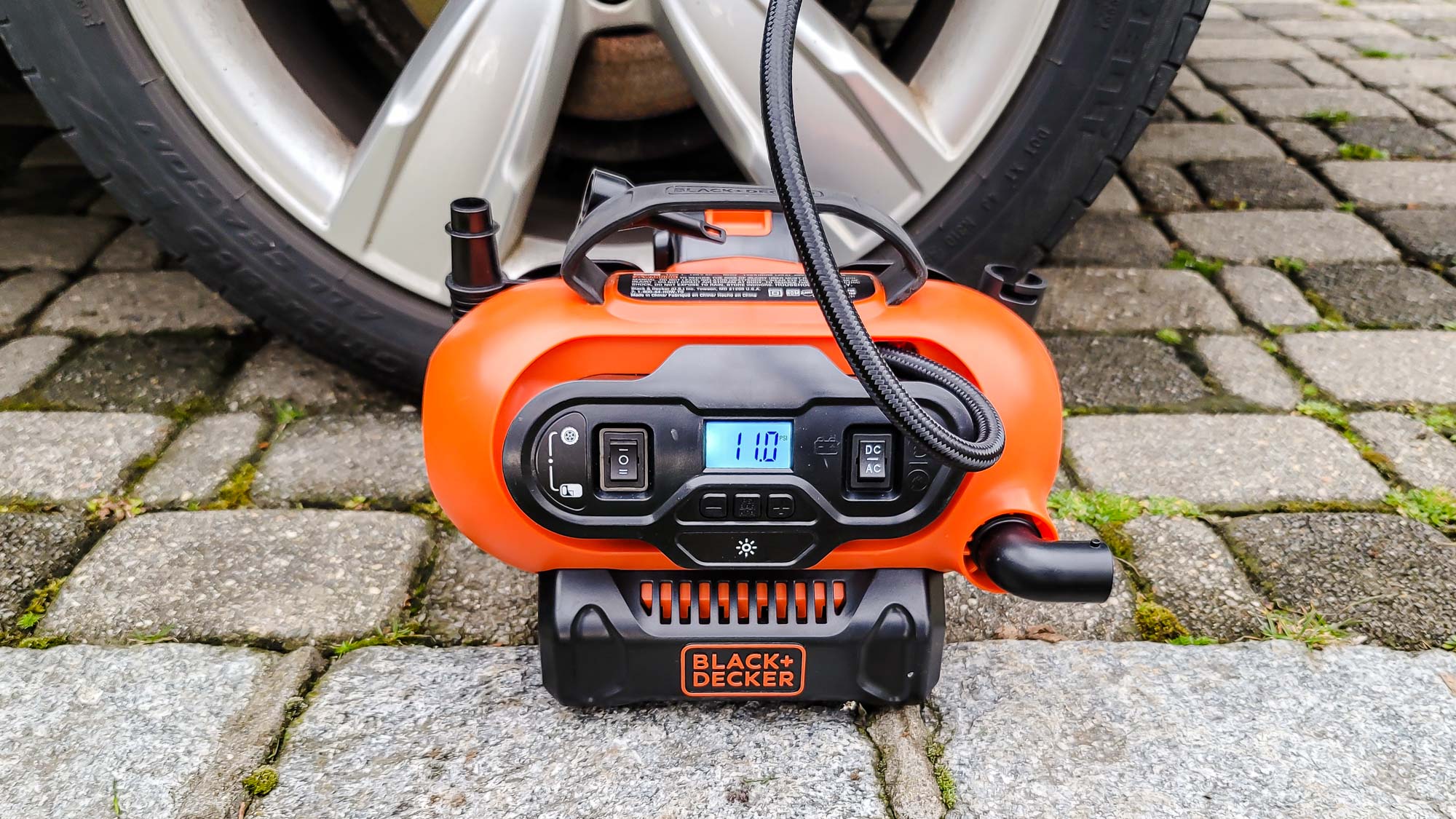
3. Black & Decker 20V Max Inflator
Our expert review:
Specifications
Reasons to buy
Reasons to avoid
While big, bulky, and relatively average where inflation speed is concerned, versatility is the key part of what makes the Black + Decker 20V Max Inflator so appealing. If you have the money, batteries mean this inflator will work just about everywhere, but if they’re a little too pricey then 12V and AC power can step in to fill the void.
Black + Decker didn’t pack this inflator with a lot of frivolous extras, so it won’t recharge your phone or light up your work area should that ever be necessary. It has plenty of reach, and can inflate a tire in little over three minutes.
Read our full Black + Decker 20V Max Inflator review
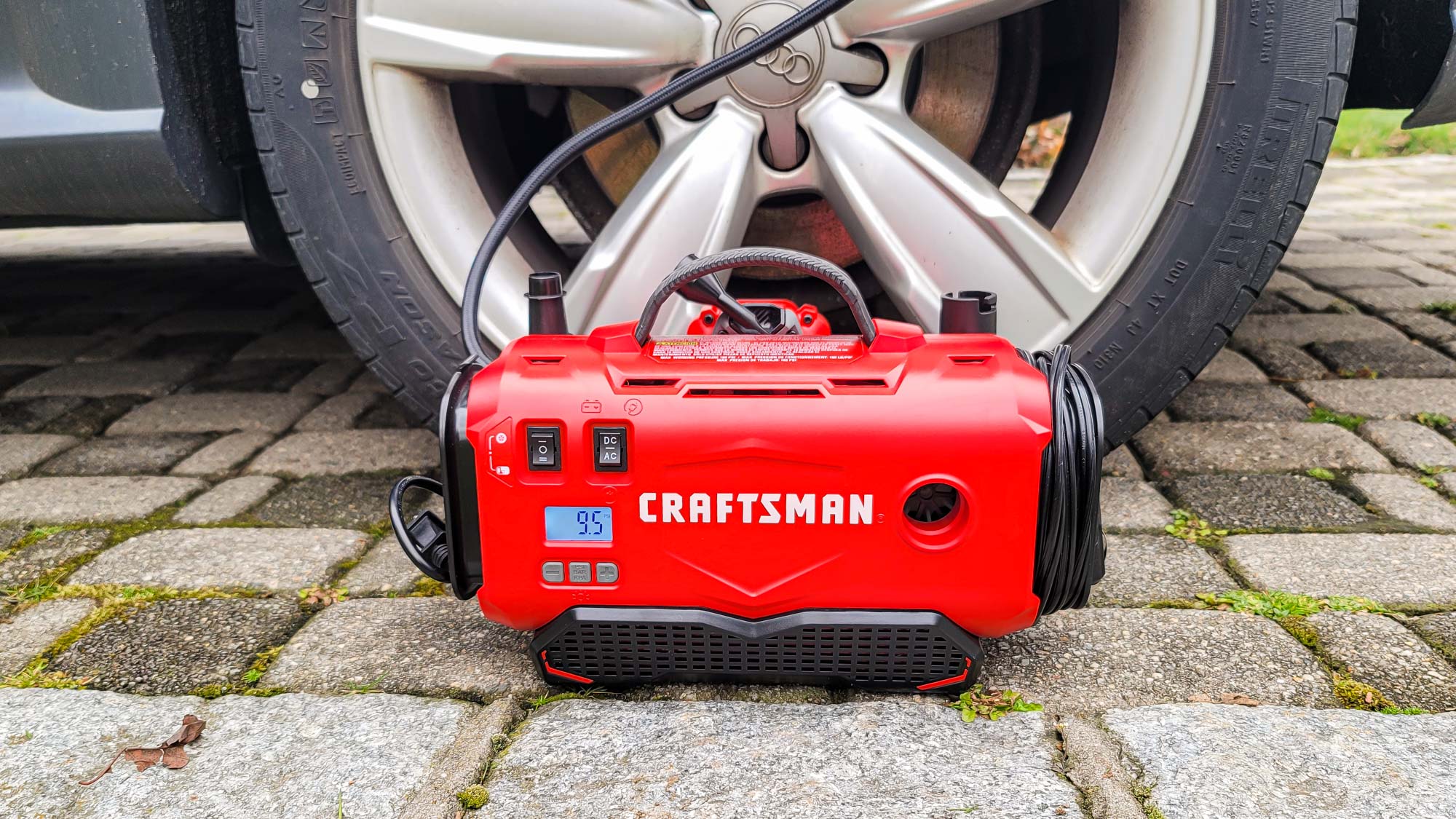
4. Craftsman V20 Cordless Tire Inflator
Our expert review:
Specifications
Reasons to buy
Reasons to avoid
Costing a little less, but offering a similar sort of physical experience is the Craftsman V20 Cordless Tire Inflator. This too offers a three-way power option, letting you pick from batteries, AC or 12-volt connections, and pumping to a maximum of 160 PSI - some of the highest pressure of the inflators we tested.The downside is that the Craftsman is big and bulky, and pretty slow to inflate a standard car tire.
But if you value flexibility, don’t mind about extra bulk, and want something that gets the job done, the Craftsman V20 is a solid choice. Plus, with a three-year warranty thrown into the mix, it’s an investment that should keep your tires pumped for a good long while.
Read our full Craftsman V20 Cordless Tire Inflator review
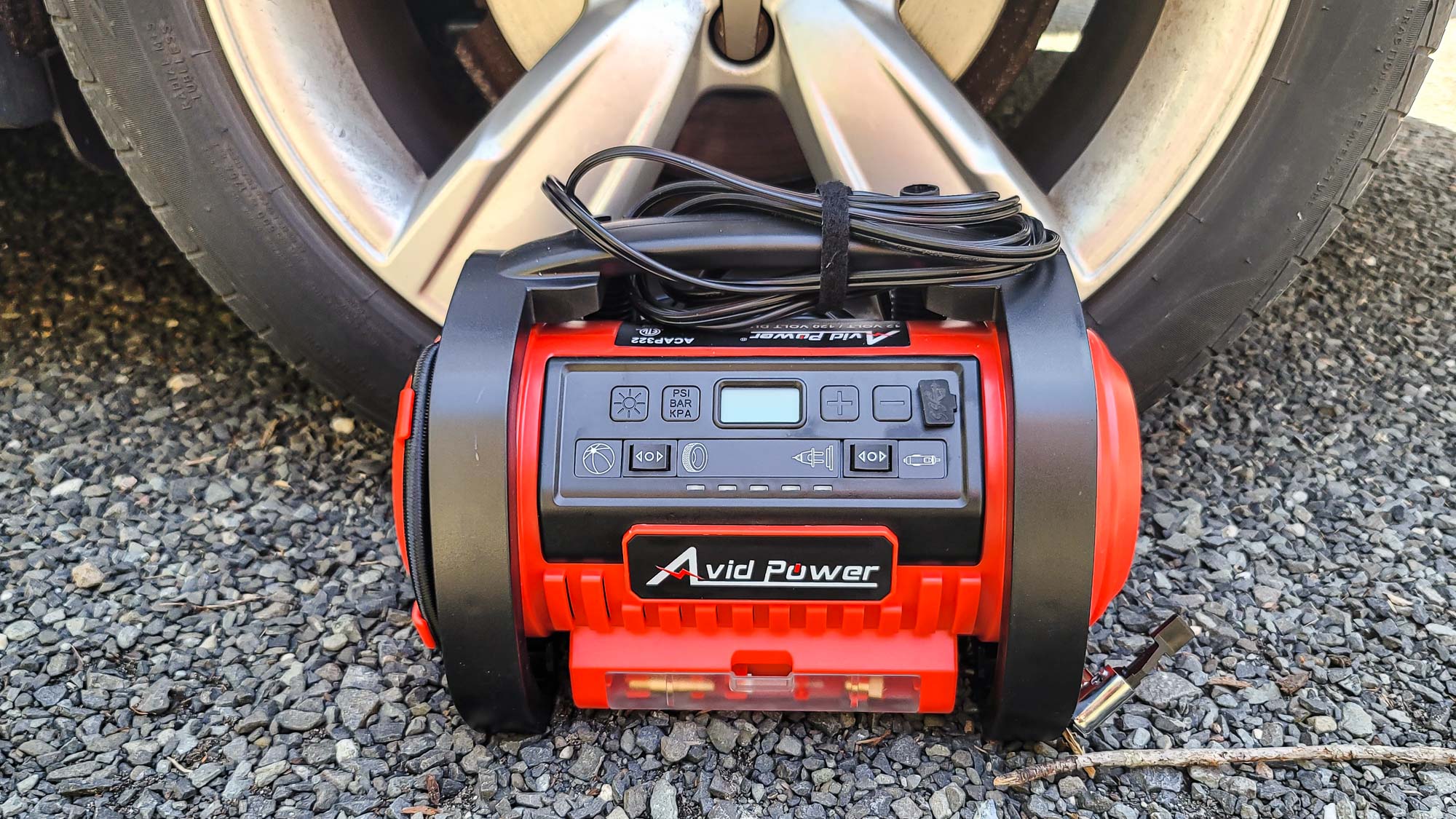
5. Avid Power Tire Inflator
Our expert review:
Specifications
Reasons to buy
Reasons to avoid
The Avid Power Tire Inflator is one of those gadgets that could be brilliant, if not for a few small oversights. Not that it’s bad, and isn’t worth buying, just that it could easily have had a lot more to offer. Still, with the ability to refill a tire in just under three minutes, it’s one of the fastest inflators we tested - beating out more expensive models from more established brands.
On top of that you have the choice to run the inflator from AC or 12 volt power sources, 11 to 12 feet if reach, USB power ports and an emergency light, and a case for the many accessories that the Avid Power is bundled with. Sadly there are a lot of cables and cords to wrangle, with no obvious place to put them, and no additional versatility afforded by battery power. But if those are caveats you can deal with, and many no doubt can, this is an inflator that’s well worth your consideration.
Read our full Avid Power Tire Inflator review
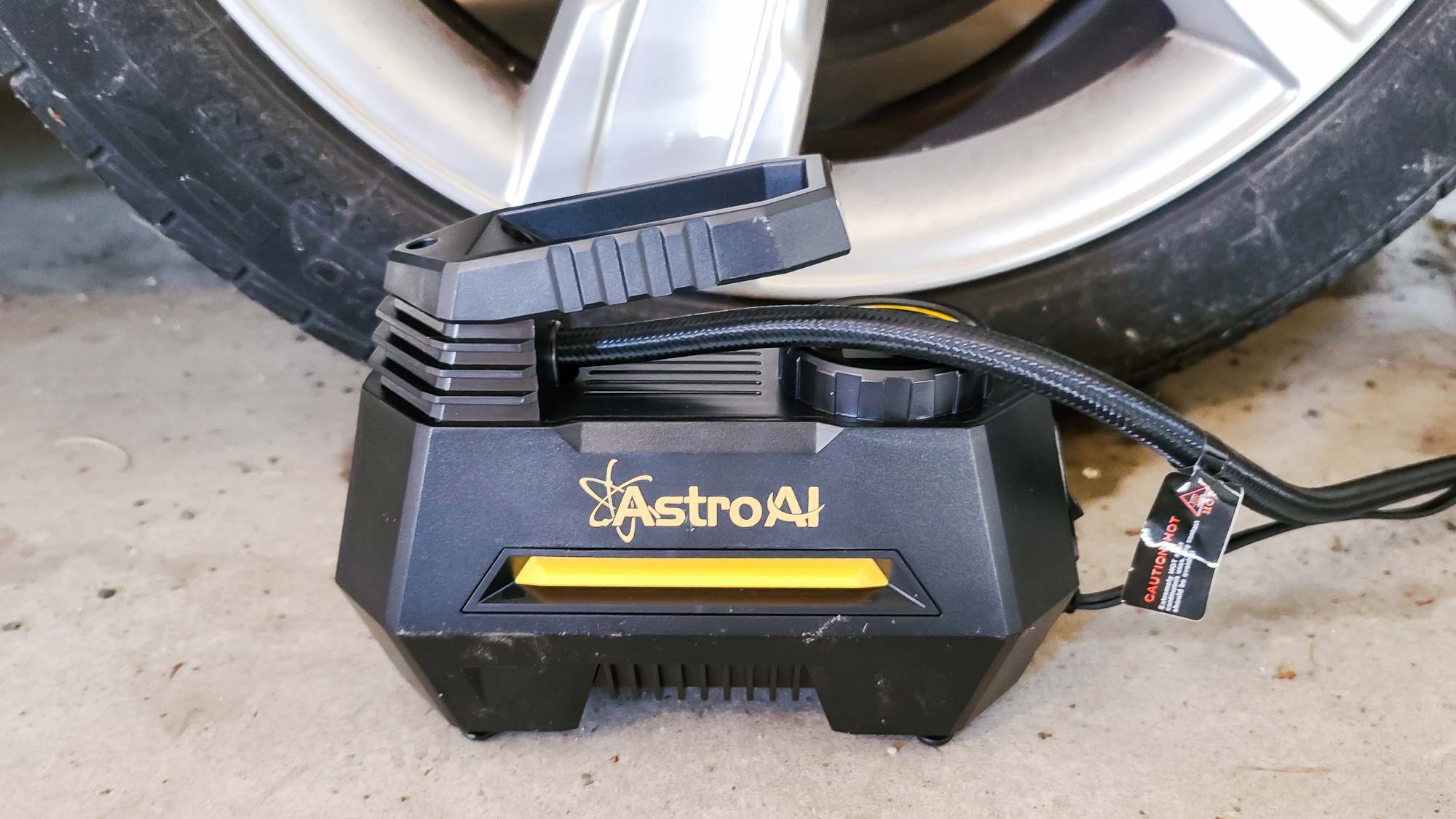
6. AstroAI Air Compressor
Our expert review:
Specifications
Reasons to buy
Reasons to avoid
The AstroAI Air Compressor is not what you’d call an ultra-premium tire inflator. However it is small, lightweight and inexpensive - which makes its performance all the more impressive. With the ability to fill a tire in 3 minutes and 40 seconds, the AstroAI is noticeably faster than some of the more expensive inflators in this list. All while coming in at a fraction of the price and weight of its rivals.
The 100 PSI limit won’t work for some, and others may prefer an inflator with more versatile power options. But if you need something simple and useful, with a three year warranty, then the AstroAI has you covered. Just be warned that it does make a bit of a racket during use, so maybe avoid using it when the neighbours are trying to sleep.
Read our full AstroAI Air Compressor review
What to look for in a tire inflator
There are a lot of tire inflators on the market, so many that it might be quite difficult to decide which one is right for you. Some are cheap, others are expensive, and a handful come with extra features that you might not have thought about needing before hand.
All these inflators share a common purpose, and that's the ability to pump compressed air into an inflatable object. This can be tires, but many inflators are also able to pull double duty on sports balls, pool toys and all kinds of other inflatable products. But this is the absolute basic requirement, and there are other things you might want to consider.
- Size and weight: Inflators vary in size, and you need to make sure your inflator will fit in your car, and that you can actually move it around comfortable.
- Power cable and hose length: You'll need to make sure the inflator can actually reach your tires
- Auto shut off: Digital inflators often have an auto shut-off feature when you reach your desired tire pressure — but this isn't always standard.
- Battery or not?: Many inflators have batteries, rather than relying on 12V cables, but that does mean making sure it's always charged
- Maximum pressure: Not all inflators are built equally, so if you have larger or high performance tires, you may need something that pumps to a much higher pressure
- Alternate power supply: 12V plugs are great for the car, but they're not so good if you need to use your inflator elsewhere. Inflators with batteries, USB ports or standard power cords can be available if you want them.
- Other features: There are inflators that can pull double duty, either as a flashlight, jump starter or something else you may not have thought you needed
How we tested tire inflators
To evaluate tire inflators, We start with the easy part: Measuring and weighing each piece of equipment. For those with external batteries, pumps were weighed with and without the battery pack. This is followed by grabbing the pump and walking around our car to see how comfortable it is to carry.
The next step is to look over the device and what it came with, to see if it was complete and ready to get down to inflating a car tire. After looking over the bag, if it came with one, we paid particular attention to the quality of each item’s construction. For example, one air compressor had a corner of its control panel sticking out, an obvious factory flaw.
For battery-powered inflators, the power cells overnight, with testing beginning the next morning. After that, the pump is plugged using the 12-volt adapter and–if included–the AC cord. Next, we looked at whether the air hose had a screw-on or clamp-on air chuck for the tire’s valve - though some used an extension for the secondary valve connection. Several of the more expensive inflators included a separate hose for pumping inflatable toys.
Using a tape measure, we determined the combined reach of the power cable and air hose. This accounted for any extensions that were included. With all the cables and hoses out, we checked for the places they were supposed to be stowed.
Testing the inflator’s screen and interface is next on the to-do list, as a prelude to actually using it. Everything has been leading up to the testing of each pump in real world situations. To start, I let air out of a tire, connected the pump to the valve and I timed how long it took for the pump to inflate it to 30 PSI. Next, I did the same to 10 PSI with a deflated soccer ball.
During the inflating process we made note of how loud the pump is, its pitch and how much the gear vibrated.
If the pump had one, we then checked to see if the auto-shut-off circuit activated when it was supposed to, and made use of any specialty gear the inflator came with. Such features included a USB power port for charging a Samsung Galaxy Note 20 phone, a light for nighttime emergencies and a small toolkit for roadside breakdowns.
Finally, we made note of each unit’s warranty as an indication of the company that made the compressor and their confidence in it.
Get instant access to breaking news, the hottest reviews, great deals and helpful tips.
Brian Nadel is a freelance writer and editor who specializes in technology reporting and reviewing. He works out of the suburban New York City area and has covered topics from nuclear power plants and Wi-Fi routers to cars and tablets. The former editor-in-chief of Mobile Computing and Communications, Nadel is the recipient of the TransPacific Writing Award.
 Club Benefits
Club Benefits






